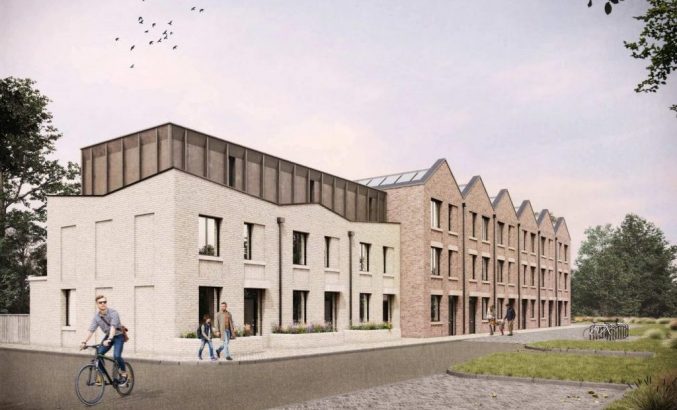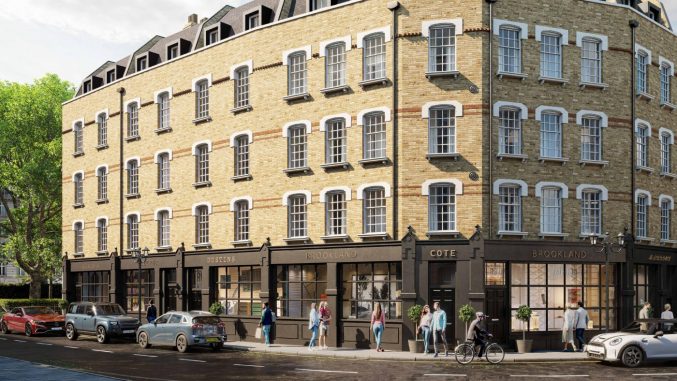House price rises send annual growth rate up to 2016 level
By Laura Miller

House prices rose again in September with most regions across the country reporting an increase, bumping up yearly growth in the property market to a level not seen for four years.
Prices jumped 0.9% this month to bring the annual increase so far to 5%, the highest rate since September 2016, according to the Nationwide House Price Index.
The average price of a home in the UK is now £226,129.
Mortgage approvals for house purchases rose from around 66,000 in July to almost 85,000 in August – the highest since 2007, well above the monthly average of 66,000 prevailing in 2019, Nationwide data found.
Robert Gardner, the lender’s chief economist, said the rebound reflects pent-up demand, with decisions taken to move before lockdown now progressing, and the stamp duty holiday is adding to momentum by bringing purchases forward.
Chancellor Rishi Sunak in July raised the stamp duty threshold from £125,000 to £500,000 in England and Northern Ireland, until 31 March 2021. Nine out of 10 transactions are no longer subject to stamp duty as a result.
“Behavioural shifts may also be boosting activity as people reassess their housing needs and preferences as a result of life in lockdown,” Gardner added.
Of those moving or considering a move, around a third surveyed by Nationwide were looking to go to a different area, while nearly 30% were doing so to access a garden or outdoor space more easily, with the majority of people seeking less urban areas, a trend becoming increasingly evident among older age cohorts.
However Guy Harrington, CEO of residential lender Glenhawk, warned “despite the Chancellor’s best efforts, the UK is staring down the barrel of a once-in a generation employment crisis”, adding the appeal of out-of-town living “will quickly lose its lustre during the cold winter months, it’s time to buckle up”.
The South West was the strongest performing region, with annual price growth rising from 2.3% to 5.5%. For the first time since 2017, house price growth in southern England exceeded that in northern England.
Annual house price growth in London continued to edge higher, with prices up 4.4% in Q3. Average prices in the capital hit a record high of £480,857 and are now 57% above their 2007 levels, versus UK prices which are 21% higher than their 2007 peak.
Tomer Aboody, director of property lender MT Finance, said: ‘Surprisingly, London has also performed strongly with good growth in values in September, as sellers take advantage of the mini boom before the possible slide which is expected once the furlough scheme comes to an end.”
Caution even for the seemingly buoyant London market is evident. Anna Clare Harper, CEO of asset manager SPI Capital pointed out there is much variation within London.
“A measured approach is needed as we move into the fourth quarter of the year. Investors and home buyers must remember that even cheap borrowing needs to be paid back: future capital growth is a bonus, not a guarantee,” she said.
Others are seeing signs the market is now slowly cooling with tighter lending and first time buyers being squeezed out. In the Nationwide findings, younger people were much more likely to have put off plans to buy property than older people, which may reflect concerns about employment prospects.
“The good news is the slowing of the market, triggered by tighter lending, means that we are unlikely to see a cliff edge drop at the end of March when the stamp duty holiday ends, creating another boom and bust scenario,” said David Westgate, group chief executive at Andrews Property Group.
“With the level of economic uncertainty ahead, we are now slowly moving towards a buyers’ market.”
Nervousness among movers based on the economic situation may be less prominent than trepidation about the same outlook from banks.
Jeremy Leaf, north London estate agent and a former RICS residential chairman, said: “Of just as much concern to our buyers, and particularly those vital first-time buyers, is mortgage accessibility with lenders running the risk of reducing activity in the market at a time when it is so vital to the economy generally.”

Laura Miller is a freelance journalist who writes about money and business. She regularly appears in UK national and trade newspapers and magazines, and has previously worked for ITV News and the Telegraph among others. Find her on twitter @thatlaurawrites










You must be logged in to post a comment.